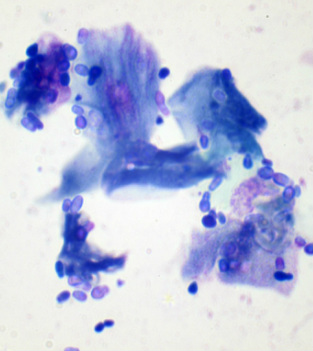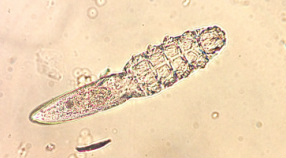Itchy Dogs
Itching dogs can be one of the most frustrating conditions for both veterinarians, owners, and of course...dogs! Skin allergies are often accompanied by secondary infections that develop and complicate both the diagnosis and treatment.
It is critical to schedule regular follow-up appointments with your veterinarian, and to follow medication and treatment instructions carefully, in order to have the best outcome for your dog.
Severely affected pets may never become entirely "normal", but we can often make them significantly more comfortable!
It is critical to schedule regular follow-up appointments with your veterinarian, and to follow medication and treatment instructions carefully, in order to have the best outcome for your dog.
Severely affected pets may never become entirely "normal", but we can often make them significantly more comfortable!
Why Is My Dog Itching?
- Environmental Allergens - dust mites, pollens, molds, fleas
- Food Allergy - Many food companies advertise completely "corn and soy free" diets as for dogs with skin allergies, but they are probably only helpful to a low percentage of dogs. These are not one of the major contributors to allergies. Dogs with food allergies are usually itchy all year long. They commonly have ear infections, lick their feet, and have skin infections on their inner thighs/belly as well the face on occasion. Food allergies don't normally develop until a dog is a few years of age, although they can develop in younger animals.
- Sarcoptic Mange - scabies mites, commonly transmitted through contact with local wildlife, such as foxes
- Demodectic Mange - demodex mites that live in normal dog skin, but living in high numbers unchecked by the immune system
- Bacterial Infection
- Yeast (Malassezia) Infection
- Atopy
- Most Commonly, A Combination of Two or More of the Above!
How Do I know What's Causing The Itch?
More information coming soon....
How Do We Treat The Itch?
More information coming soon...
RESOURCES:
- www.vderm.com - Dr. Buerger, Veterinary Dermatologist. The section under "Allergies" is quite helpful.
- Carol Foil, DVM




